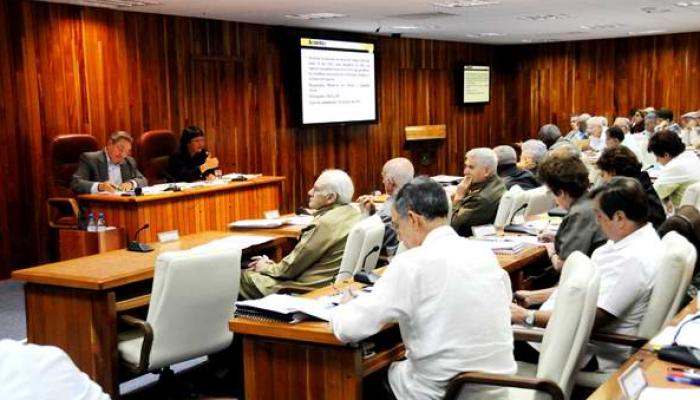Havana, May 21 (RHC) – Cuban President Raul Castro headed a meeting of the country’s Council of Ministers, which analyzed the economic plan for 2015, which was presented by Economy and Planning Minister, Adel Yzquierdo.
Preliminary figures presented by Minister Yzquierdo, which do not yet represent the economic plan at such, but are important to draw it up. The meeting considered possible performing levels of different economic sectors and social services.
Some of the issues on the agenda included food production, power generation, investment, commercialization of goods, particularly the sale of construction materials to the people, and the trends of employment.
The Council of Ministers also approved the general basis for the drawing up of a Social and Economic Development Program for 2016-2030, which were the result of a deep analysis by all state bodies.
Once the Program is drawn up, it will provide a future scenario expressing through long-term, concrete and tangible indicators, the objectives, strategic working guidelines, sources of financing, goals and gaps to fill in order to consolidate the construction of a prosperous and sustainable socialist society, said government vice-president, Marino Murillo, during the meeting.
The principles of such a program include guaranteeing economic growth that provides wellbeing, equity and social justice, maintaining social ownership over main production means, achieving a socialist development model, encouraging innovation, technology and sciences, transforming the country’s energy pattern with larger participation of renewable sources, recovering and modernizing the country’s infrastructure and guaranteeing demographic sustainability, Murillo explained.
The restructuring of the ministries of Transportation and Tourism was also considered at the forum in order to achieve larger rationality and advance towards the separation of the functions of the state and those relevant to the enterprises, and the reordering of entrepreneurial systems.
With these actions in the two ministries, the current restructuring process concludes its first stage after including 20 entities of the state central administration. The process will continue with the implementation of the social and economic guidelines adopted by the Cuban Communist Party.


